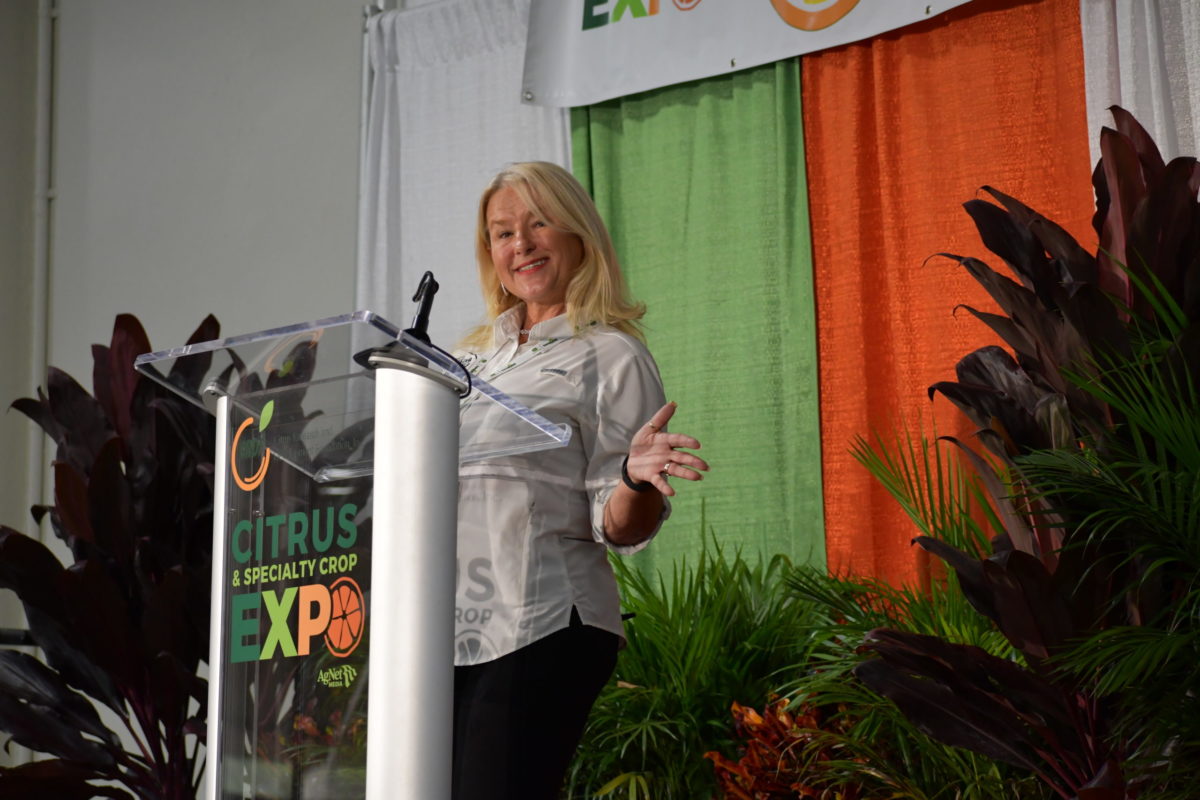By Frank Giles
The Citrus & Specialty Crop Expo ventured into new territory this year — literally. After three decades at the Lee Civic Center in Fort Myers, this year’s event was held at the Florida State Fairgrounds in Tampa. There were several factors forcing the move, including damage to the Lee Civic Center from Hurricane Ian.

With a new facility always comes unknowns, but the AgNet Media team worked hard, along with its seminar planning partners, and pulled off a successful event. The show was well attended and scored good praise all around.
ARE YOU COVERED?
A key component of the Expo is its educational seminars. The event included a general session on the opening morning that tackled big topics, followed by breakout seminars focused on vegetable/specialty crop and citrus production.
Bryan McQuary, senior risk management specialist with the U.S. Department of Agriculture, provided an update on crop insurance options during the general session. The Hurricane Insurance Protection – Wind Index (HIP-WI) is a newer policy that is becoming more popular with Southeastern producers, especially after recent hurricanes.
HIP-WI was first available for purchase for the 2020 hurricane season. It covers a portion of the deductible of the underlying crop insurance policy when your area is hit with sustained hurricane-force winds from a named hurricane based on data from the National Hurricane Center at the National Oceanic and Atmospheric Administration (NOAA). McQuary said eligibility is simple.
“If a hurricane hits your county or an adjacent county with winds of 74 mph or greater, you get paid automatically — no questions asked,” he said. “And for 2023, we added a new tropical storm index option.”
The new option covers named tropical storms, as reported by NOAA with maximum sustained winds exceeding 39 mph and precipitation exceeding 6 inches over a four-day period. Both the wind trigger and precipitation trigger must occur for an indemnity to be paid.
McQuary noted that if a storm hits, the payouts can be substantial and are a big help after a disaster strikes. During the past three years, HIP-WI has paid out nearly $550 million in indemnities. As an example, 2022’s Hurricane Ian resulted in almost $300 million in indemnity, of which about $260 million is attributed to HIP-WI.
AGRITAINMENT OPPORTUNITIES
Many operations have been finding ways to open their farms to the public to generate extra revenue. Whether it be you-pick, retail sales, events or farm-to-table, there’s many creative ways to expand your farm’s reach.
That was the message from Michelle Welch, president of the Florida Agritourism Association, during the general session. Welch also owns and operates Wishing Well Barn, an agribusiness with entertainment options open to the public. She said agritourism has helped many farmers stay in business.
“I always tell people you can only sell your property one time,” she said. “If you sell your property, it is going to hurt the whole state. That property is going to be developed and covered in more concrete. We need more green spaces. But if you start an agritourism operation, and people come and pay to do whatever activity on your farm, you are selling that over and over again. Over time, that adds up.”
Welch gave some impressive figures on just how much people are willing to pay. She grows fields of flowers on her farm. People pay upwards of $150 per hour for photo shoots in the flowers.
For more information, visit the Florida Agritourism Association website.










